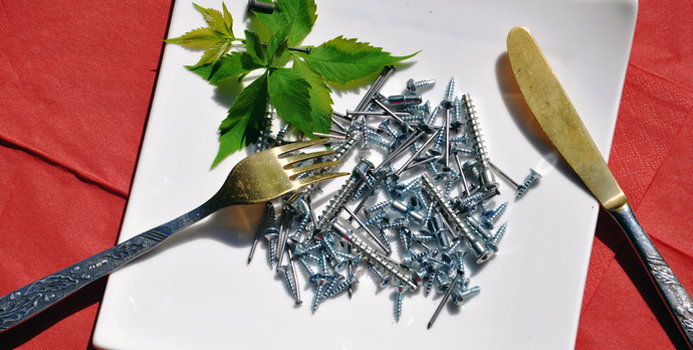Iron deficiency happens when the iron stores in your body become reduced and can no longer meet your body’s basic needs. When iron deficiency become severe, anemia will develop and this is called iron deficiency anemia. There are other types of anemia, such as from Folate or B12 deficiency.
Iron deficiency can affect brain function, behavior, work capacity and productivity, weaken your immunity and decrease your ability to resist infections.
Some primary causes of iron deficiency could be due to inability to absorb iron, blood loss, diets low in iron, consuming too many foods that inhibit iron absorption, infections, blood loss due to intestinal parasites, malnutrition and some diseases.
Here are some signs you may not be getting enough iron.
- Irritability
- Fatigue
- Pale appearance
- Poor appetite
- Decrease in mental attention
- Decrease in alertness
- Hemoglobin testing resulting in low hemoglobin
- Decrease in learning ability
- Cold hands and feet
- Swollen tongue
- Headache
- Hair loss
- Lightheadedness
- Brittle nails
- Shortness of breath
- Rapid heartbeat
- Pica
- General exhaustion
If you are concerned about being at risk for iron deficiency anemia you can see your doctor to have blood work done. They may test your serum ferritin, hemoglobin, serum iron, transferritin saturation, and others.
If your doctor finds that you have an iron deficiency, they will prescribe you iron supplements and other supplements like B12, Folate or Vitamin C.
Diet Considerations
There are several things you can do to improve your diet to help prevent or support treatment of iron deficiency.
1. Include Foods High in Iron Every Day
- Good Sources: Prunes, Spinach, Kale, Green Leafy Vegetables, Apricots, Oatmeal
- Better Sources: Fish, Soybeans, Beans, Peanuts, Beef, Lentils, Poultry, Eggs, and other Legumes
- Consider a multi-vitamin that contains Iron
2. Improve Iron Absorption
- Consume Vitamin C with your Iron Supplements or with your iron-rich foods to improve absorption of the iron
- Do not consume coffee, whole grains, tea, or dairy milk with your iron-rich foods because this can reduce absorption of iron
- Consider if you may have been exposed to unsafe water or conditions in which you may have been exposed to parasites which can cause infections
3. Take Supplements
Take any iron supplements you are prescribed the way the doctor recommended and discuss with your doctor if you have been sick or think you may also have an infection because iron supplements can potentially make the infection worse.
[Image via Shutterstock]



